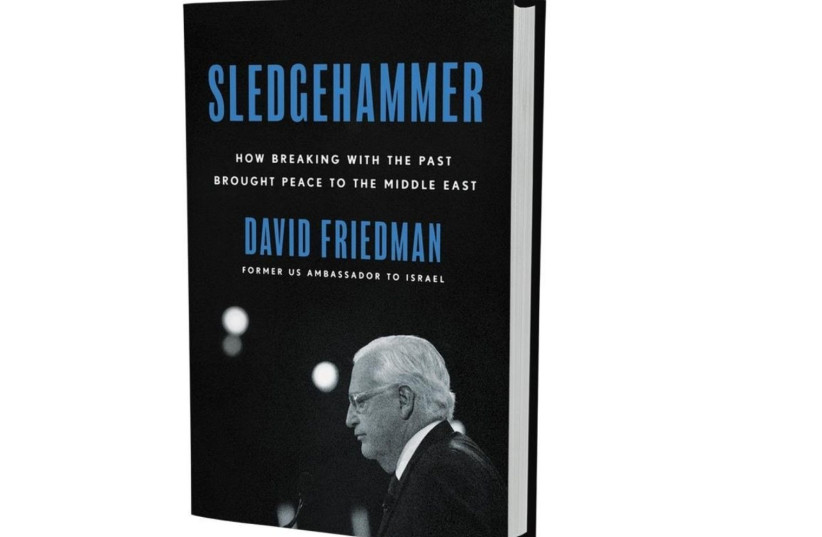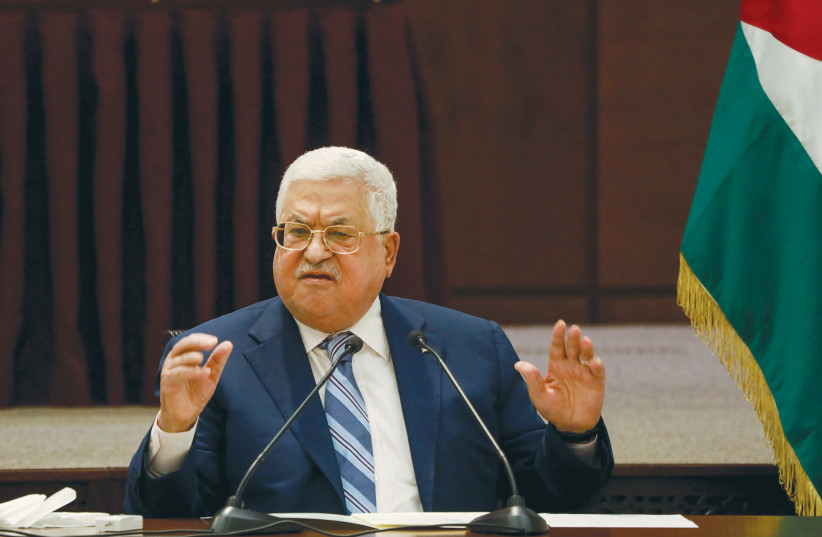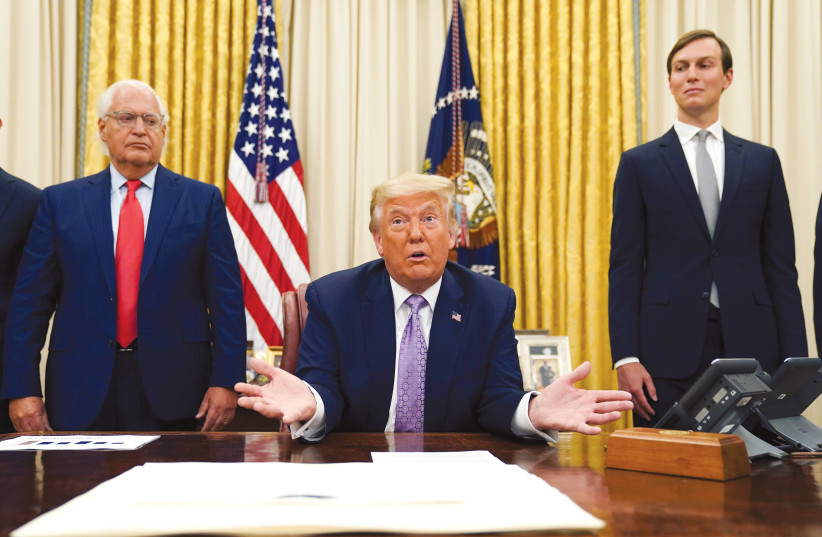Former US president Donald Trump already believed at the beginning of his administration that prime minister Benjamin Netanyahu did not want peace with the Palestinians, former US ambassador to Israel David Friedman reveals in his soon-to-be-released book, Sledgehammer.
Friedman describes in the book – set to be released on February 9 – how he and Trump’s Middle East envoy at the time, Jason Greenblatt, tipped off Netanyahu and worked together to disabuse Trump of that notion.
The ambassador describes a “brilliant move” by the Palestinians ahead of Trump’s visit to the region in May 2017, in which they had “a respected businessman, major philanthropist and active player in the region,” and a Trump supporter, speak to the president on the topic.
That person is Ron Lauder, who once supported Netanyahu but had a falling out with him, though Friedman does not name him in the book.
Lauder told Trump that the Palestinians “were prepared to make peace with Israel on very favorable terms, even to include conceding all of Jerusalem to Israeli sovereignty and giving up the return of refugees, but the problem was that Bibi Netanyahu was unwilling to negotiate peace. The surrogate informed the president that he needed to pressure Netanyahu and embrace Abbas in order to make a deal. Trump bought it... He was going to put the screws to Netanyahu to force a deal.”

Knowing that Abbas would never consider such a deal that Lauder claimed, Greenblatt called Friedman, and they agreed that Netanyahu should be warned that the Palestinians had manipulated Trump.
Netanyahu was “very agitated” by the call, and called Friedman for a meeting.
The ambassador suggested that the Prime Minister’s Office prepare a video that would reveal Abbas’s “true colors.”

Contrary to what journalist Bob Woodward reported in his book Rage – that Netanyahu showed Trump a doctored video – Friedman writes: “I emphasized that this needed to be completely honest – nothing out of context and nothing subject to multiple interpretations.”
In Trump’s first meeting in Israel with then-president Reuven Rivlin, he said, “He understood that Abbas was desperate to do a peace deal, the prime minister of Israel was unwilling.”
Friedman, Greenblatt and the others were worried that Trump’s remarks would be leaked to the press – perhaps in light of Rivlin’s contentious relationship with Netanyahu – but they were not.
Trump then met one-on-one with Netanyahu, and 45 minutes later, aides entered the room. The leaders discussed Israel’s security, and Friedman suggested that they watch the video of Abbas’s speeches.
“With that we watched two minutes of Abbas honoring terrorists, extolling violence, and vowing to never accept anything less than Israel’s total defeat,” Friedman recounted. “Abbas ranted that the blood of every shaheed – literally a martyr but also a terrorist – was holy and would be avenged.”
Friedman did not say the video included what Woodward’s book said, that it “sounded like Abbas was ordering the murder of children.”
After watching the video, Trump said, “Wow, is that the same guy I met in Washington last month? He seemed like such a sweet, peaceful guy.”
LATER IN the trip, when Trump met with Abbas in Bethlehem, he “laced into Abbas over the tape, demanding to know who he really was, a peacemaker as he claimed in Washington or a terrorist as he proclaimed on the tape.”
Friedman also reported that Abbas complained about Israeli security in the West Bank.
“Trump asked him how much Israel was charging the PA for those security services,” the ambassador wrote. “Abbas looked stunned. He replied that Israel was performing those services at no cost to the Palestinians.”
The book continues: “The president jumped on this admission. He observed that the Palestinians live in a very dangerous part of the world and have virtually no ability to defend themselves... He was incredulous that Abbas was rejecting free Israeli security support when Israel was the only player in the region that knew how to fight these implacable foes.
“Abbas looked at Trump as if he had two heads – no one had ever spoken to him before with this brutal clarity,” Friedman recalled.
One of the recurring motifs of Sledgehammer, a memoir of Friedman’s time as ambassador and relationship with Trump, is the envoy butting heads with the establishment.
He repeatedly clashed with former secretary of state Rex Tillerson, one of which was about the video Friedman suggested that Netanyahu show Trump. Tillerson and then-national security adviser H.R. McMaster were “livid” and thought it was a “cheap propaganda trick.”
“I work for the president, nobody else,” Friedman said he told the officials. “He had been given bad information. Frankly, I’m surprised you didn’t know about it. I am going to make sure that he is well informed so that he gets Israel policy right. And I will keep doing that as long as I have this job, and even after I don’t.”
Trump did not seem to see a problem with Friedman’s approach. At the end of the president’s trip to Israel, he wrote Friedman a letter commending the “tremendous job” he did, and that he “will be able to help us negotiate the ultimate deal.”
Trump reverted back to his pre-video-viewing opinion of Netanyahu in recent years.
Friedman told this week’s Jerusalem Post Podcast that Trump was unhappy with Netanyahu’s speech at the White House in 2020, when Trump presented his peace plan for the Israelis and Palestinians.

Trump felt Netanyahu’s remarks sounded too much like an election speech, and Netanyahu was too hasty in pushing for sovereignty in Judea and Samaria, Friedman recounted.
Speaking to Israeli journalist Barak Ravid in early 2021, Trump said, “I thought the Palestinians were impossible, and the Israelis would do anything to make peace and a deal. I found that not to be true.
“Bibi did not want to make a deal,” he stated. “I wish he would have said he didn’t want to make a deal... because a lot of people devoted a lot of work. But I don’t think Bibi would have ever made a deal.”
Abbas, Trump posited, “wanted to make a deal more than Netanyahu... We spent a lot of time together, talking about many things. And it was almost like a father. I mean, he was so nice, couldn’t have been nicer.”
